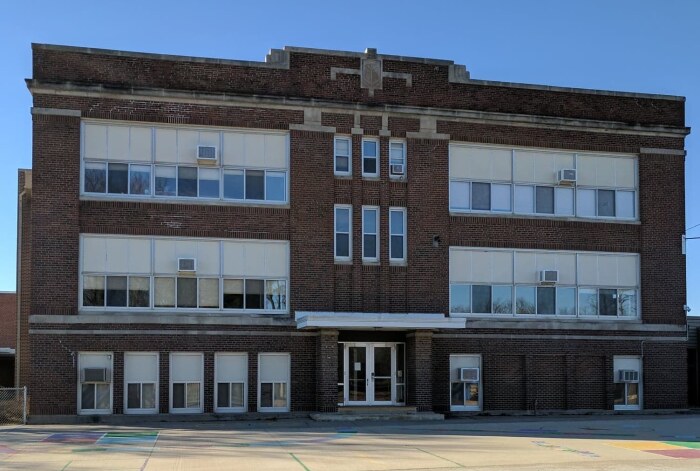Bruce Lear identifies problems with a charter school bill Iowa House Republicans passed on March 24. -promoted by Laura Belin
When I was a teenager, my Mom told me, “Nothing good happens after midnight.” I didn’t believe it then, but I do now. It’s especially true when the majority party tries to sneak a bad bill through the Iowa House after midnight.
That’s exactly what happened when Republicans passed House File 813, an effort to promote charter schools, with no public hearing and little public notice. This bill would change how a charter school may be started in Iowa by keeping the provision in current law allowing application to a local school board, but expanding that application process so the “founding group” may bypass the local school board and go directly to the Iowa Department of Education.
Yes, these charter schools are public schools, but they would not have an elected school board, and they would be exempt from some rules for public schools. Instead, they would be governed by a “founding group,” which is about as transparent as how the bill passed the House in the first place.
House File 813 more questions than it answers. For example, how will teachers be paid? Many charters use a merit-based approach, but the bill is silent about many of the rules. We do know that it cannot be a religious school. Also, the majority of the “founding group” must be from the area where the school is located, and all must be from Iowa.
But there are many unknowns, including three huge items not addressed. The state has no idea what this will cost, because the bill has the state paying the cost of transfer of every student to the charter. We also don’t know what it will cost public schools in funding, because no one knows what the migration toward the charter might be. The biggest unanswered question is, how do you keep the school student centered instead of profit centered?
Having failed to ram their voucher scheme through both chambers quickly, Republicans drafted a “vouchers lite” bill. House File 813 is dressed up to look as pretty as possible, in order to fool those skeptics who may have resisted vouchers initially because they believed it would kill rural Iowa. This one is a bad bill too, and poorly written.
Most charter schools don’t last. According to a 2020 nationwide study by the Network for Public Education, 20 percent of charters closed their doors within three years of opening. 25 percent closed within five years, and 40 percent were shuttered by their 10th birthday. There are no requirements in the bill for these schools to remain open for any length of time.
This bill does not require local school board approval, once again shattering the myth the Republican Party stands for decisions being made at the local level. In fact, the bill’s floor manager was State Representative Skyler Wheeler, who also authored the bill banning the 1619 supplemental slavery curriculum in all schools. Wheeler’s lack of concern for local decision-making continues with this bill.
Rural legislators shouldn’t be fooled into voting for this bill. After all, if an out of state group is interested in making a profit on a charter school, would they locate in Whiting or Hamburg, or would they target the booming suburbs around one of Iowa’s urban centers?
The famous bank robber Willie Sutton was asked why he robbed banks. He replied, “Because that’s where the money is.” To survive and thrive, charter schools need two things: lots of people, and lots of money. Rural Iowa has neither.
Throwing open the doors for more “public” schools does not enhance the opportunity for Iowa’s students. It limits opportunity because it spreads the already meager public-school funding even further. It’s like expecting ten for a soup dinner and 20 guests show up. You can add water and still have soup, but it just doesn’t taste the same, and it leaves people needing more.
Because of this, any “founding group” will need more than the state’s cost per pupil allocation as a financial foundation. The group will need to have some rich backers or be able to tap some readily. That’s why corporations may be the first “founding groups” that venture into the “Field of Dreams.”
As a result, Republicans might think twice politically about this move. Based on previous bills proposed to punish big tech companies, there is no love lost between these Republicans and tech companies. Big tech is always looking to push new boundaries and charter schools in Iowa might be just the boundary they are looking to push.
Also, if Iowa voting patterns hold, the suburbs have been trending Democratic. With new charter schools popping up, my guess is the voting increases in the suburbs might enhance Democratic election chances.
There seems to be two trends running through the Iowa legislature’s 2021 session. First, solutions in search of a problem. I haven’t heard a clamoring for more charter schools in Iowa. If there were a strong desire to create them, more than two would have been established under the existing law.
The second theme is the legislature trying to be the big school board in Des Moines, instead of letting local control work as it has for more than 100 years.
It’s time for the state lawmakers to adjourn and head home. It’s time for Iowa voters to ask themselves, do we really want private corporations running our public schools for profit? I don’t think that’s an Iowa value.
Bruce Lear lives in Sioux City and retired after 38 years of being connected to public schools. He was a teacher for eleven years and a regional director for the Iowa State Education Association for 27 years until retirement.
Top image: Photo by Bruce Lear of the school he attended in Shellsburg, Iowa (Benton County), published with permission.

